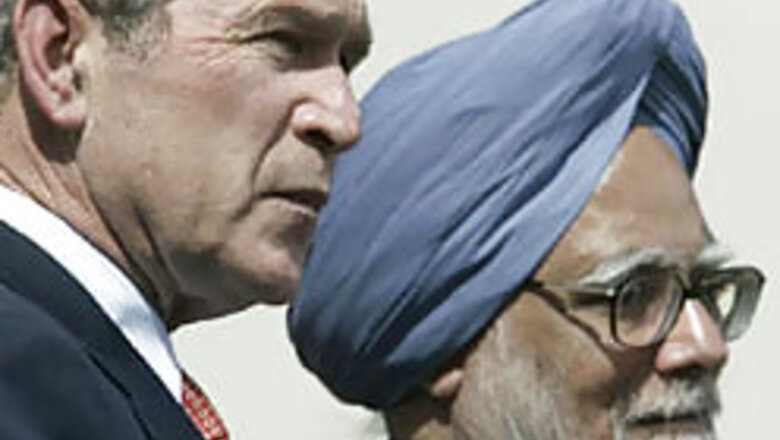
views
Vienna: Ireland and Austria are the two countries at the 45-nation Nuclear Suppliers Group that stand between India and the ending of its 30-year-old nuclear isolation.
The NSG is meeting in Vienna to agree terms for lifting a ban on trade with India which would help New Delhi to finalise a nuclear cooperation deal with Washington. Sources in the External Affairs Ministry tell CNN-IBN the Ireland and Austria are still opposed to waivers granted to India but New Delhi has made it clear that it won’t make any more changes in the draft agreement circulated to NSG.
“We remain committed to a voluntary, unilateral moratorium on nuclear testing. India will work to the advancement of non-proliferation,” says the External Affairs Ministry in a statement on its website.
In an indication that India's case for a waiver for nuclear commerce is going down to the wire, the NSG broke for informal discussions after two rounds of formal parleys.
The one-hour break is expected to be used by those having "strongest opinions"--those strongly pushing for the India waiver like Russia, Britain and France and those who have reservations like Ireland, New Zealand, Austria and Switzerland to discuss and attempt to thrash out differences, PTI quoted an unnamed Western diplomat as saying.
Friday is the second and last day of discussions. India's case for a clean and unconditional waiver from the NSG got a boost on Friday after New Delhi's reaffirmation of its commitment to non-proliferation goals.
External Affairs Minister Pranab Mukherjee’s statement that India remains committed to a voluntary moratorium on nuclear testing created a favourable atmosphere at the NSG. He said India would not touch off a new arms race or share sensitive nuclear technology with others.
''We do not subscribe to any arms race, including a nuclear arms race,'' Mukherjee said on Friday. ''We have always tempered the exercise of our strategic autonomy with a sense of global responsibility. We affirm our policy of no-first-use of nuclear weapons.''
Acting US Undersecretary of State John Rood, who specializes in arms control issues, said that Washington remained ''confident and optimistic'' that it would hammer out a compromise.
Rood hailed Mukherjee's statement as ''very significant'' and expressed hope that it would lay to rest any lingering concerns about India's nuclear ambitions and intentions.



















Comments
0 comment